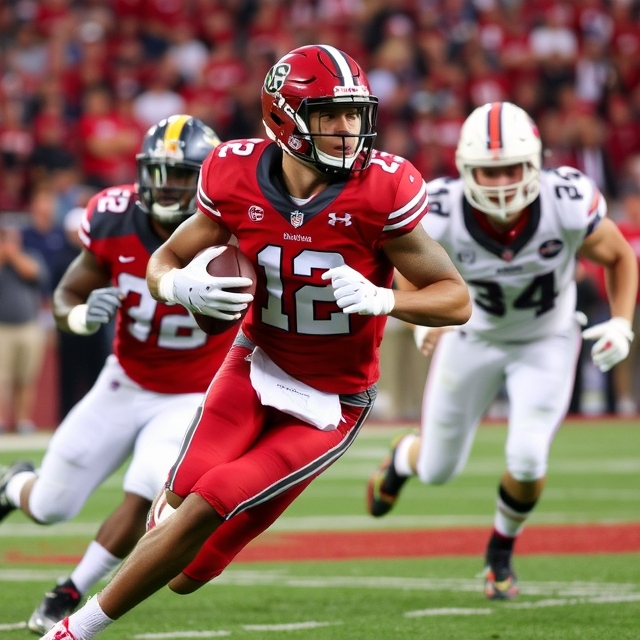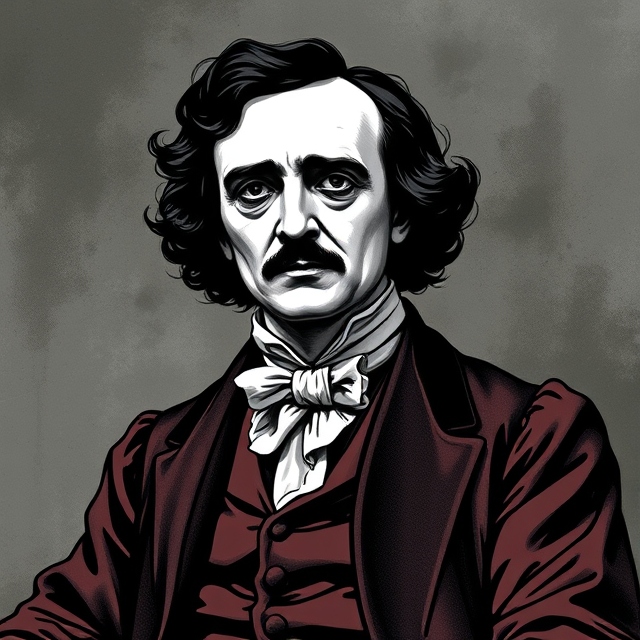
Benjamin Franklin Biography
Biography of Benjamin Franklin: With Ambition, Curiosity, and Tenacious Dedication, Franklin Climbed from Lowly Origins to Become One of the Most Influential Founding Fathers in American History. Franklin devoted his life to advancing science, politics, and civic life; he displayed qualities of self-improvement, innovation, and public service. This blog will attempt to cover a summary of Franklin’s life that starts out as an apprenticed youth and finally ends as a world-statesman, which should describe how his vision and accomplishments help form the United States.
Benjamin Franklin : A Modest Beginning with Limited Means
Benjamin Franklin was born in Boston, Massachusetts, on January 17, 1706, to a family of modest means, being the 15th of 17 children. His father, Josiah Franklin, was a soap and candle maker who could not cope with raising so many children. Benjamin, who was still a pretty young boy himself, had a voracious thirst for knowledge; however, his education would not be pursued because he would apprentice to his eldest brother James who ran a printing business in Boston at the age of ten.
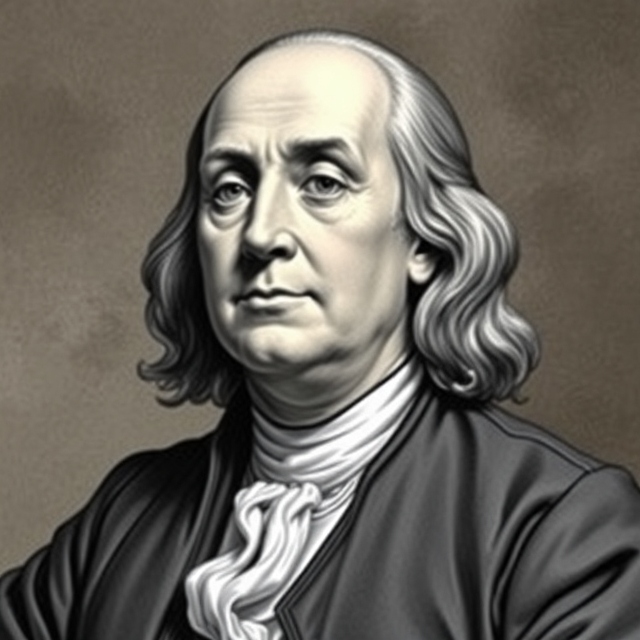
He also learned how to set up type for a printing operation in the shop and how to print newspapers, which he distributed. Though Franklin worked very hard, he used his time to read much and acquire books and study late into the night. When Franklin was 15, he started writing anonymous pieces for his brother’s newspaper, The New-England Courant, under the pseudonym “Silence Dogood.” The letters, full of satire and perception, were popular with readers, although Franklin’s brother was very upset when Franklin outed the author.
However, Franklin and his brother James often had a hard time where great arguments and even fist fights were not uncommon. When Franklin was 17, he had decided that Boston held little prospect for success, and with some coins in his pocket, he left for Philadelphia, Pennsylvania-an adventure that would shape him to be one of the greatest men in American history.
Benjamin Franklin : Franklin’s Travelling Road to Toil, Curiosity, and Invention
When Franklin arrived in Philadelphia in 1723, he knew no one and did not have a job. Yet knowledge of printing would soon serve him well to find employment. He quickly established himself as a responsible young man who worked hard and could be trusted, and he soon found a mentor in Samuel Keimer, owner of a printing operation that got his foot in the door in the Philadelphia business community. Franklin did not rest on his laurels, however-he soon set off for London in 1724, where he learned even more about printing. He was abandoned in England without a penny because William Keith, the governor of Pennsylvania, had previously pledged to provide Franklin with an incursion of support of his plan for a printing business.

Franklin might have come off track from his career, but he made use of the situation to learn. He put in enough effort as a printer in London and increased his knowledge and connections that would later support him. By 1726, he had returned to Philadelphia full of energy; by 1729, Franklin took over a newspaper called The Pennsylvania Gazette. Under his leadership, it eventually became one of the most respectable papers, introducing editorial innovations such as cartoons that made the paper even more popular.
Franklin’s business as a printer expanded rapidly, expanding into other industries, but was always driven by a deep sense of curiosity and a desire to make society better. In 1731, Franklin founded America’s first lending library, the Library Company of Philadelphia. That was a new idea at the time, one that supplied commoners with a source for books and encouraged people to read and educate themselves. Another example is the founding of, in 1736, one of America’s earliest volunteer fire departments, the Union Fire Company, testifying to Franklin’s public-spirited sensibility toward community safety.
Franklin was also curious about scientific investigation. In the 1740s, he began conducting experiments on electricity, a relatively new field at that time. Franklin’s kite experiment of 1752 demonstrated before the world that lightning was electricity; this led to his invention of the lightning rod, an extraordinarily simple and life-saving apparatus for protecting buildings from lightning stroke. The discoveries he made on electricity brought him international fame with honors from scientific societies in Britain and France.
Even at such a highly achieved point in his life, Franklin still clung to the credence in self-betterment. Actually, he even drew up a list of 13 virtues which he found difficult to live by: both temperance and silence to humility. It is this practical approach to self-improvement that will come to embody Franklin’s philosophy, and his autobiography, written many years after the fact, proves to be quite an enlightening look at how these virtues are attempted at.
As Franklin’s influence grew, he showed a keen interest in politics and was elected to the Pennsylvania Assembly; soon enough he became a zealous advocate for rights of the colonies. His diplomatic skills were well in proof when he was sent to England in 1757 as an agent for the American colonies. This had already heightened tensions between the colonies and Britain since Britain introduced new taxes upon them but did not give them representation. Franklin’s work as a colonial negotiator was a precursor to his greater importance in the American Revolution.
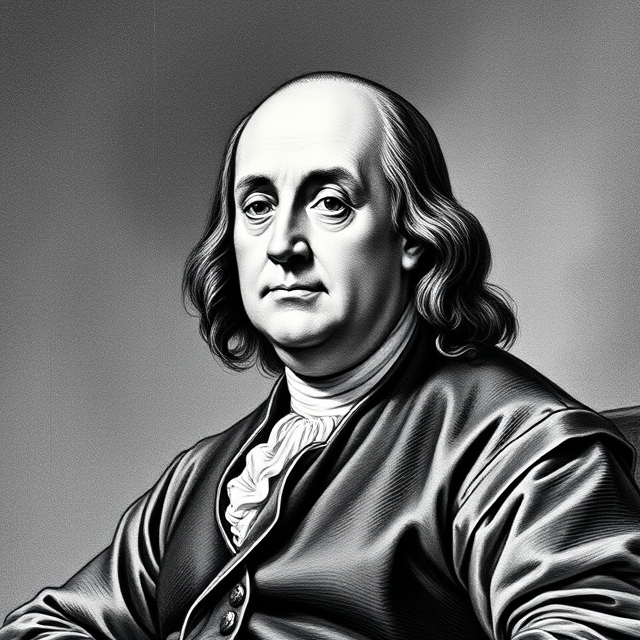
Benjamin Franklin : Franklin and the Founding of America
By the 1770s, Franklin had emerged as one of the colonies’ most outspoken advocates for independence. He appeared at the Second Continental Congress in 1775 and contributed greatly to the forming of the United States. Franklin, along with other Founding Fathers, was responsible for the Declaration of Independence document that would change history forever. An expert in diplomacy, he helped the American colonies obtain military support and a much-needed influx of finances when France allied itself with them during the Revolutionary War.
This year Franklin went to Paris for alliance with France. He always had an agreeable countenance and wit, along with humor, making him highly popular in France; thus, he forged a crucial alliance that established American success. One of Franklin’s greatest successes is that he was able to succeed in the signing of the Treaty of Alliance with France in 1778, wherein he really proved brilliant in diplomatic competencies.
Even after the Revolutionary War, Franklin still felt for the country. He attended the Treaty of Paris negotiations in 1783; that treaty marked the ending of war and formally accepted American independence. Franklin returned to Philadelphia when he was 81 years old; soon he was elected a delegate to the Constitutional Convention in 1787. Franklin’s experience and wisdom did a lot for the U.S. Constitution which would establish the foundation for governing America.
He did far more than politics as contributions to American society. He was an impassioned advocate of education and worked energetically at establishing one of the nation’s first universities-the University of Pennsylvania. His proselytizing for public institutions and innovation set the building blocks for the structure of society in the early years of the Republic. In his later years, Franklin has also been known to be an outspoken critic of slavery; this was an institution that he had embraced earlier in life. He became a member of the Pennsylvania Abolition Society. From then onward Franklin was actually calling for abolition of slavery; this was reflective of his changed views on human rights and justice.
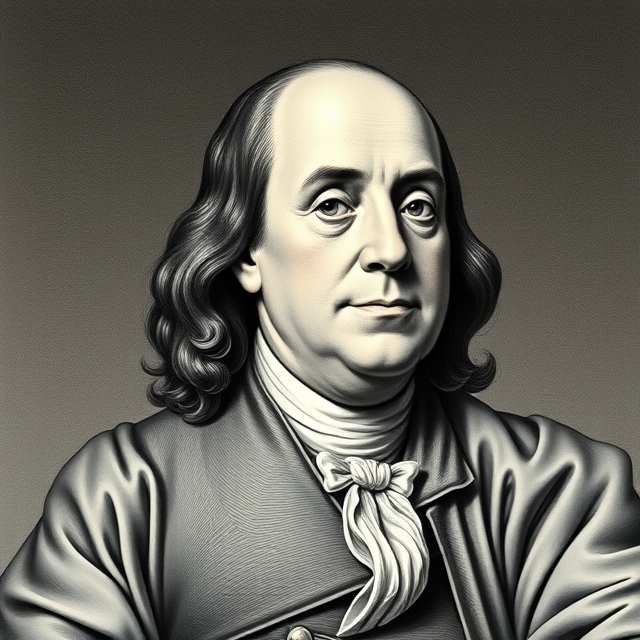
He held the motto of continuous pursuit for knowledge, public service, and civic responsibility deep in his legacy, which shaped American identity to bring the bar for future leaders very high. Old age caught up at a moment when he was energetic about scientific pursuits and social causes, leaving behind a mark of progress and public responsibility.
Benjamin Franklin : More Detail
- Scientific and Technological Development: Franklin’s experiments with electricity and invention of bifocal glasses, the lightning rod, and the Franklin stove established him basically as an energetic scientist working in favor of real practicality which aids life in its everyday activities. His work turned him into a world-renowned figure underlining the role that innovation was going to play in America.
- Social contribution: America’s first public library, fire department, and university symbolize Franklin’s devotion to community engagement and public service. His institutions provided a base for public establishments in America with regards to the role of education, safety, and civic responsibility.
- American Revolution Leadership Franklin’s leadership skills played a crucial role in persuading France to support American Revolution-an alliance absolutely necessary for American victory. His activities in drafting the Declaration of Independence and negotiating the Treaty of Paris helped shape the United States as an independent nation.
- Champion of Enlightenment Values: Franklin’s obsession with himself, reason, and civic virtue was undoubtedly prototypical of the Enlightenment. His writings, certainly his Autobiography, have inspired people everywhere to manifest persistence, curiosity, and a commitment to progress.
- Conversion Related to Social Cause: He was an acceptance slavery but then a abolitionist, so did support reviewing as well as changing many of their firmly fixed positions regarding issues. His activities with the Pennsylvania Abolition Society, in his last years of life, illustrate that he was man for justice and equality.
Conclusion
So, Benjamin Franklin’s life is, in short so very typical of how the spark of curiosity coupled with diligent hard work and dedication to common good works. From lowly apprentice young printer from Boston, he finally became one of the Founding Fathers of the United States, whose journey was indeed distinguished through relentless pursuit of knowledge and commitment to public service. And through science, politics, and civic life, Franklin contributed in ways few have touched the nation beyond his time. His legacy inspires generations.
He perfectly epitomized the idea of a self-made person for whom intelligence and effort enable effective change. The said success, however does not find a person’s genesis but the learning that leads to adjustment in adding one’s input toward improving society. At that particular point in time when resources were so scarce, Franklin found and exploited every obstacle and eventually etched his marks forever into the.



